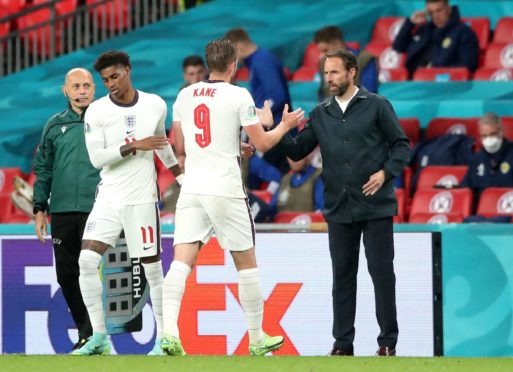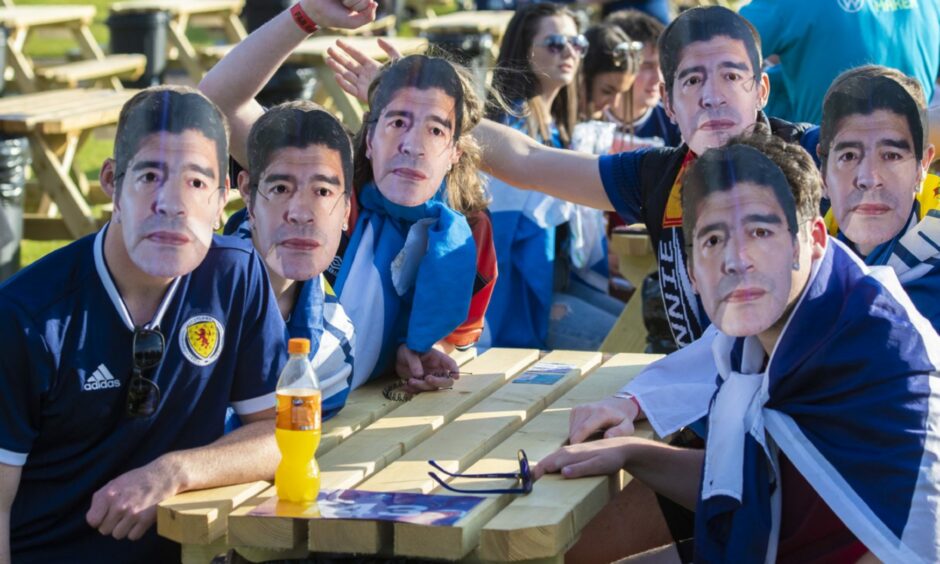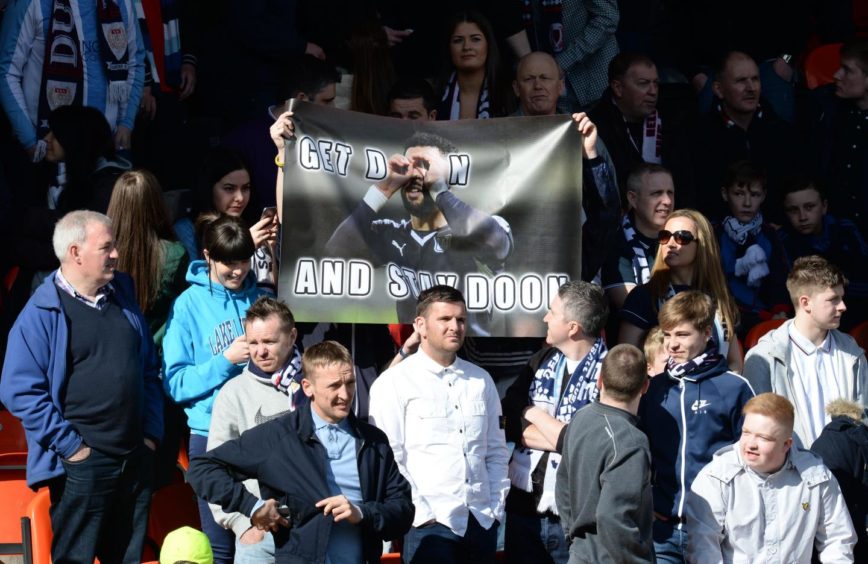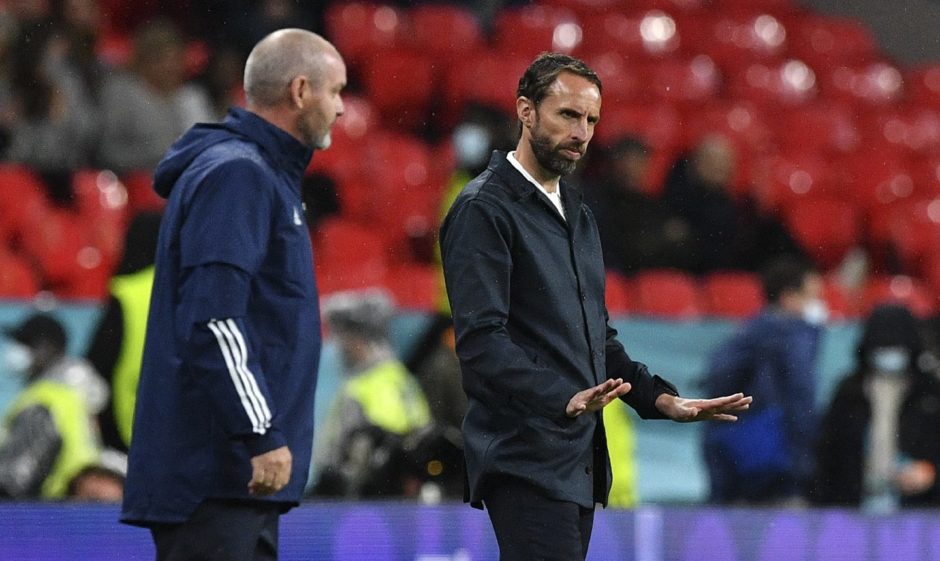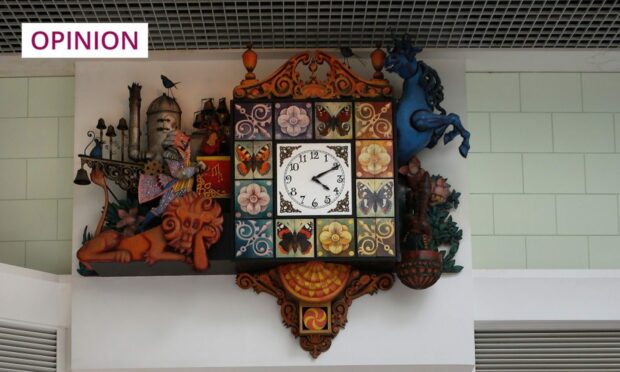Short-lived as it was, Scotland’s return to a major international football tournament was a largely uplifting experience.
You can overplay these things, of course, but what’s not to like about saltires hanging out of windows and kids getting a first, and pure, sense of sporting nationhood with the bonus of a couple of hours off their lessons to gather round a television and watch a game together?
OK, we’re well past the point when those flags should have been taken down and there will now be a new generation of young Scots with emotional scars, but the pros have out-weighed the cons.
“The love that we’ve felt from this country has been incredible. Seeing Scotland flags in people’s windows, seeing so many strips out in the streets when we’re driving to games – that’s amazing. I hope that continues.” pic.twitter.com/z64pD2gOlz
— Scotland National Team (@ScotlandNT) June 23, 2021
In the main, the traditional early exit apart, seeing Scotland like itself for a couple of weeks has been a real pleasure.
And for those of us who pay attention to these European Championships and World Cups even when there isn’t a Scottish team to get behind, there has been another upside.
It’s taken the edge off worrying whether this is the summer England go all the way.
What a joy it’s been to actually have a team to actively support rather than hitching a ride with whoever happens to be next to face the Auld Enemy and then ditching them if they let us down by failing to knock them out.
With the ‘our plucky boys were unlucky/our manager made a mess of it/why can’t be we as good as Croatia?’ post-mortem now being superseded in Scottish football terms by the imminent return of club football, this welcome distraction has gone.
But these Euros are still there to be watched.
You might have heard that England have beaten Germany in their last-16 encounter, the weaker side of the draw, and a route strewn with rose-petals to the final has opened up before them.
Anyone But England time is here again.
Don’t be lulled into thinking that because that nice Mr Southgate has put together a squad of players without a wrong ‘un among them, it has gone away.
It hasn’t. Nor will it ever.
The fear will hang over more people who watch football in this country than care to admit it.
It’s nothing to be ashamed of, though.
Football is different
Nearly all of my primary school years were spent in England and blissfully happy they were too.
I feel as if I’ve got as much in common with folk in the city my brother lives in, Newcastle, as I do with Aberdonians or Borderers.
I get more enjoyment out of watching the British and Irish Lions play rugby than the Scottish team, I’ve found pleasure in the sight of David Warner’s middle stump being sent half-way to the boundary rope in an Ashes test match and until Andy Murray came along, the prospect of Tim Henman winning Wimbledon didn’t fill me with anything approaching dread.
But football is different.
I don’t think that it’s really possible for Scottish or Welsh supporters to support England. Mainly because of the coverage and commentators from both bbc and itv are so biased towards England, the pre game comments from the Scotland England game being the case in point
— J (@J26548857) June 28, 2021
Some people will claim ‘it’s not the team, it’s the commentators’ or ‘it’s not the team, it’s the media’.
Both of the above can be irritating and irritating would undoubtedly turn into insufferable should a trophy ever be won.
But they are red herrings – a more socially acceptable cop-out.
For most of us, it comes down to unadulterated football rivalry.
If you support Dundee you don’t want Dundee United to win anything.
If you support St Johnstone it applies to the pair of them.
Go through the country, make that the world, and it’s the same story.
Rangers v Celtic. Barcelona v Real Madrid. Inter v AC Milan. Boca Juniors v River Plate. There are grudge matches that sometimes even defy geography and rational logic.
I’m a Liverpool supporter and, trust me, having to choose who to reluctantly get behind when Chelsea were playing Manchester United in a Champions League final was not a decision I wanted to make in the middle of my honeymoon.
No other sport does tribalism like football or even comes close.
Two sides of one coin
If you follow a team (club or country) passionately, there is always at least one other for whom you wish nothing but misfortune.
These are the two sides of the same coin.
If Wales, Northern Ireland or the Republic of Ireland ever got into a final, I’m not sure I’d want them to win either, come to think of it.
And all those Englishmen and women who claim they want the other home nations to do well soon change their tune if any of their Celtic neighbours actually have the temerity to last longer in a competition for once.
I give you Wales at Euro 2016.
But most football supporters wouldn’t bother with the patronising bit anyway.
Lol's at England fans at Wembley cheering the Croatia goals at Hampden 😂
— Adam Guest – DM's always open #itsoknottobeok (@adamguestwfc) June 22, 2021
Three of the biggest roars at Wembley during the England v Czech Republic game the other week were for Croatian goals being scored at Hampden.
That’s how it should be.
The same goes for the glee and satisfaction they got when the realisation took hold that their own goalkeeper, David Seaman, letting a Patrick Kluivert shot through his legs against the Netherlands ensured Scotland would be knocked out of Euro ’96 on goal difference.
So yes, unfortunately, the stage of putting mental energy into hoping England lose has arrived.
Pretend to others that you’re happy for them to win, if you have to.
You can even go through the stage of trying to tell yourself ‘how bad can it really be?’
But when you go all-in as a football fan, it will never leave you.
It’s more of a curse than a blessing and there are times when you don’t feel particularly proud of yourself.
Some will shout it at their TV screens and put it out there on social media. Others will be more restrained and let it stay a (guilty) thought.
But those three little words are as relevant as they ever were for Scottish football supporters.
Anyone But England.
